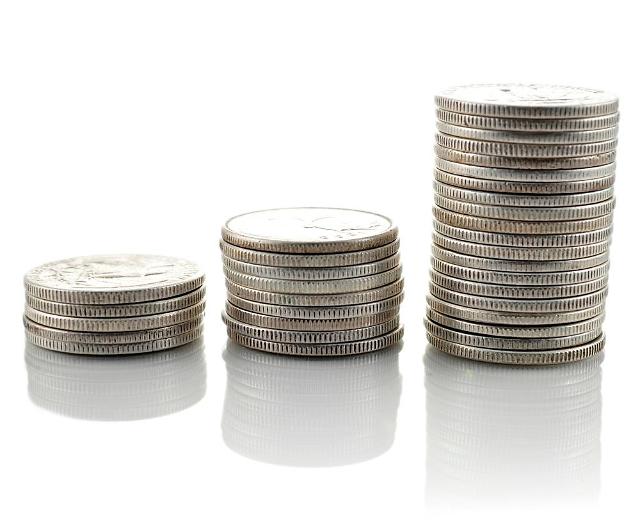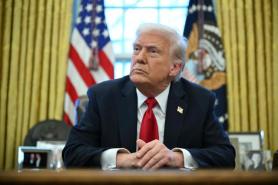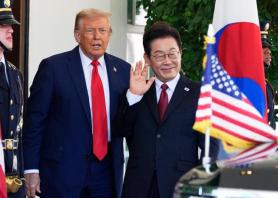
[Iclickart]
SEOUL -- The Bank of Korea (BOK), after much deliberation, took a step towards monetary tightening Friday by raising the policy rate by a quarter percentage point for the first time in a year to 1.75 percent.
The move is in line with the market consensus, which had anticipated that the central bank would take action at its last rate-setting meeting of the year, despite sluggish employment and an apparent economic downturn.
As a series of anti-speculation measures, led by the government, did not bring about the kind of results anticipated, insiders have claimed the BOK has been under pressure throughout the year. The bank has taken flak for not doing its part to tame high-flying real estate prices and ballooning household debt.
Former governments have used the housing market as an easy tool to help stimulate the economy through boosting construction and home transactions. Around 2014, the government eased administrative and financial red tape. Apartment prices in Seoul's affluent Gangnam district and some other neighborhoods have jumped on hopes of reconstruction projects moving forward and ample liquidity circulating in the economy.
The BOK lent support to the move with rounds of rate cuts, as the key rate touched a record low of 1.25 percent in June 2016. However, the incumbent Moon Jae-in government, which took office in May last year, has been struggling to bring soaring housing prices under control. It has increased property taxes and imposed a ban on bank lending to multiple home owners.
Despite such moves, speculative home buyers have not budged and apartment prices in the capital city of Seoul rose at the highest pace in a decade in recent months.
High-ranking government officials, including Prime Minister Lee Nak-yon, pressed the central bank to raise the interest rate, blaming the years-long low borrowing costs for causing the overheated housing market. Sources hinted that it was difficult for the BOK to shrug off mounting calls, although it has sought for the best timing for monetary tightening.
South Korea's household credit surpassed 1,500 trillion won (US$1.33 trillion) in September, continuing its record-breaking pace. BOK Gov. Lee Ju-yeol has emphasized the BOK's role in redressing an imbalance in the financial field brought on by nearly a decade of low interest rates that have inflated real estate prices and household debt.
"Household debt is growing at a faster pace than that of income. If this upside tempo continues, it will become a threat to financial stability," the top monetary policymaker said earlier. "We should be ready to proactively deal with the matter before (household debt) reaches a dangerous level."
The widening interest rate difference between South Korea and the United States is another key issue for the central bank's latest rate-setting meeting. With the U.S. Federal Reserve's rate increase to a range of 2 percent to 2.25 percent in September, the rate spread between the U.S. and Korea widened to an 11-year high of 0.75 percentage point for more than two months.
A far wider rate spread may spark an outflow of foreign funds from the South Korean financial market. Currently, more than 30 percent of market capitalization of South Korea's benchmark KOSPI bourse is owned by foreign investors.
If the U.S. Fed carries out the third hike in December as forecast by some, the BOK could come under considerable pressure. However, experts noted that it will be unlikely that the BOK increases the benchmark rate again in the near future due to clear and worrisome signs of an economic slowdown. The BOK revised down its earlier growth forecast to 2.7 percent for 2018 from its initial target of 3 percent, citing sluggish employment and investment. For 2019, Asia's fourth-largest economy will likely grow 2.7 percent.
(Yonhap)
Copyright ⓒ Aju Press All rights reserved.



